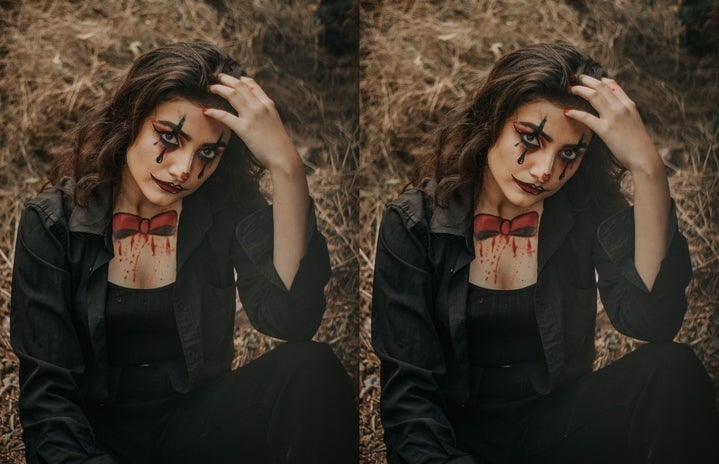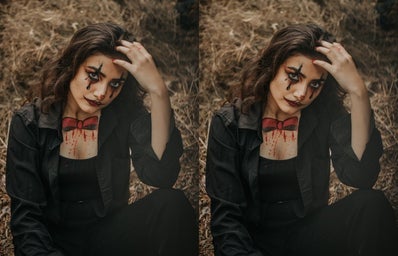The Dark Knight is a film that was ritually played on HBO. So it was in a matter of no time that I, a casual admirer of Christopher Nolan, finally watched it on a lazy afternoon. While there was a lot that could be said about the movie, I was intrigued by one of its most famous aspects – Nolan’s take on the antagonist. Joker is one of the most widely reincarnated characters of all time with every generation creating its own version of the cackling maniac. I remember wondering, “Why is it that this character, who is arguably the most popular embodiment of chaotic evil, always welcomed with cheers and applause? Why is his entrance always anticipated?” Not just him, but various other evil characters are in a love-hate relationship with the audience. Take Voldemort or Thanos. Why is this so? Why do we love villains?
We all have been conditioned to settle down as per the general norms of society. One may look around and see that everyone is craving a similar lifestyle marked by peace and stability because that is what will keep one safe. Following the rules labels a person as good; however, going against them marks them as being deviant. Doing something that is stimulating but against the norms will be cause for trouble. What can’t be ignored, however, is that curiosity is inherent. According to Gottfredson and Hirschi’s Self Control Theory, pleasures obtained from crime is equally obvious and appealing to all. Sigmund Freud states that beneath the righteous Ego and Superego lies the Id, which is driven by the pleasure principle i.e. its need to be selfish, and thus would love to indulge in delinquency. What better way to experience this quick thrill of immorality without getting into hot water than through transgressive fictional characters? When Darth Vader, who you obviously aren’t rooting for, appeared out of the pitch-black hallway to brutally slash down the Rebels in Rogue One, the audience turned into a zoo. Another take that is very interesting to me is that of Anne Bartsch. According to her, typically, individuals who enjoy watching horror enjoy the negativity of the film as it allows them to feel positively about their own lives, away from the screen. So, watching Pennywise going after the Losers Club may actually make us feel happier about ourselves.
If some people like the adventure of villainy, some fall for the desolation behind it. Kylo Ren is alienated by his parents, because of which he becomes an easy target for Snoke’s manipulation. His turn to the Dark side is aided by the fact that he is distrusted even by his uncle. Obito goes down the wrong path after witnessing the death of Rin, the girl he loved. These people didn’t turn bad for no reason – their tragic pasts resulted in their antagonism. Unlike heroes who seem to be the quintessence of goodness, or have the ability and the environment to healthily confront their problems, villains tend to lose their way. The Phantom in the Phantom of the Opera just tries to take credit for his work but ends up killing a man and severely disfiguring himself, due to which he goes into hiding, craving revenge. Kaitlin Budgell explains in her paper Sympathizing With The Monster that he is seen ‘not only as a monster but also as a sad man who has lost everything.’ A more popular example would be that of Attack On Titan: Reiner, Bertholdt and, Annie are initially despised because of their ‘betrayal’; but during the Marley arc, we get to know that they are victims of racism and are being forced to participate in this war because of it. Isabella from The Promised Neverland, one of my favorite anime characters, becomes the product of the horrifying system in which she is born, all because she wanted to survive. One might not agree with what the ‘antagonist’ is doing, but they can understand why they are doing it. They empathize with the villain.
Sometimes, one can’t help but root for the villain because they are more interesting to watch than the hero. Throughout the Stars Wars sequel trilogy, I couldn’t help but be intrigued by the former while being completely underwhelmed by the latter. Rey bored me. She kept emerging victorious even though she had no force training. YouTuber Thor Skywalker says that due to the attempt of portraying Rey as a goody female icon, ‘she did what the story wanted her to do, not what she wanted to do, thus ruining the illusion of the story.’ On the other hand, I found Ren to be constantly conflicted about what is right and wrong and struggle with his powers, which kept me engaged. He made the movies interesting (long story short, I watched the trilogy for him). While the hero must save the day, the villain follows an ideology they actually believe in and their commitment makes for some fascinating material. Villains and heroes can often share unique relationships which intrigue the viewers, unlike the typical ones. Joker would not exist without Batman, and the caped knight refuses to kill the maniac because of his morals. Hannibal Lecter, the cannibalistic antagonist helps Clarice Starling catch Buffalo Bill. Such dynamics offer fresh storylines and perspectives which are fodder for active debate and discussions.
It’s hard to deny that villains are an attractive aspect of any story. Fans are obsessed with them. This isn’t something recent – the fangirls of Charles Manson and Ted Bundy from the 60s are rather extreme, real-life examples of this; but they definitely give you the gist. This adoration of villainy seems to have become more mainstream now with the romanticization of werewolves and vampires, who are traditionally vilified characters becoming increasingly evident with Twilight being one example. This trend has been ever-present and it’s not going to fade any time soon.
People may identify with them, find an escape through them, sympathize for them, or just straight up find them to be the most interesting character of the story! What stands true is that stories need villains, and so do many of us.


